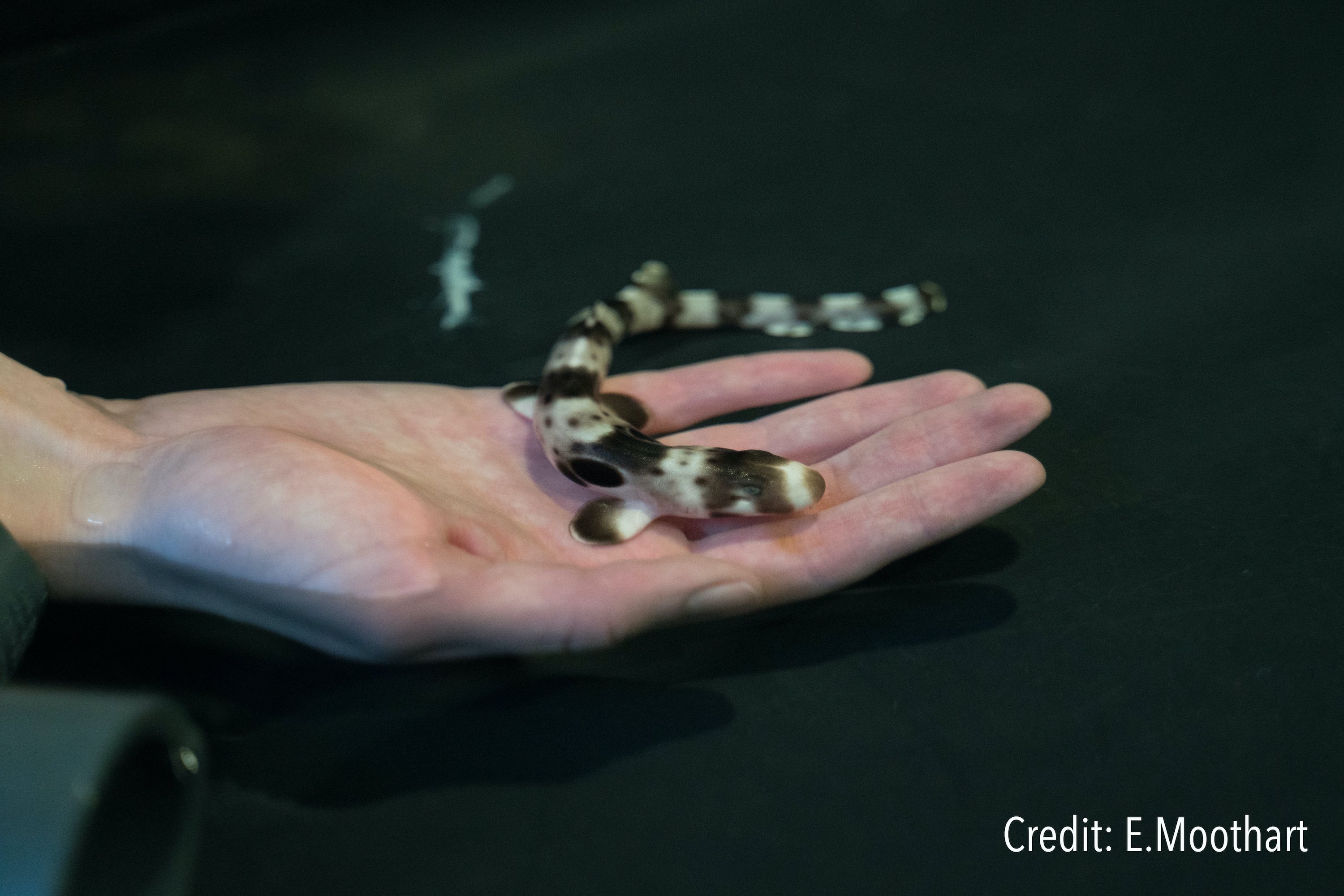Warming seas due to climate change are causing epaulette sharks on the Great Barrier Reef to be born “smaller, exhausted and undernourished,” a new study has revealed.
Researchers from James Cook University’s ARC Centre of Excellence for Coral Reef Studies, the New England Aquarium and University of Massachusetts examined the growth of shark hatchlings when born in waters of up to 31 degrees Celsius, mimicking the summer temperatures the Great Barrier Reef is expected to experience, on average, by the end of the century.
The results, according to co-author Jodie Rummer, are “daunting.”
“Embryos reared under warming conditions developed faster, depleted their energy reserves faster, hatched sooner and hatchlings had higher metabolic costs when compared to sharks reared under current-day conditions,” she told Global Citizen. “Elevated temperatures seem to be their kryptonite.”

Dr. Rummer said epaulette sharks, an egg-laying shark observed exclusively on the Great Barrier Reef, have long been recognised for their ability to adapt to ever-shifting environments. She emphasised that if the species is shown to struggle with warming oceans, other, less tolerant species, will surely struggle to survive.
"We think of the epaulette shark as a bioindicator species,” Dr. Rummer said. “If we find limits and thresholds where they are struggling, that’s a huge warning that other species that are more sensitive will be affected sooner.”
Rummer recently travelled to the reef with environmental organisation Citizens of the Great Barrier Reef.
The group is running a world-first citizen science effort to survey the health of the reef and deliver vital conservation insights, suitably named the Great Reef Census.
"It was an opportunity for me to communicate science in a really accessible and inspiring way as well as experience how the industry and the community perceive what is happening to the reef and the global problems we are facing right now — like climate change and pollution — that affect the health of the reef,” Dr. Rummer said.
She added: “The community, stakeholders, industry, charities, governments, media and scientists need to work together to identify the problems and start working toward solutions that are feasible and sustainable. No one group of us can do that alone, and I think that’s what the Citizens of the Great Barrier Reef are highlighting: that we are all in this together.”